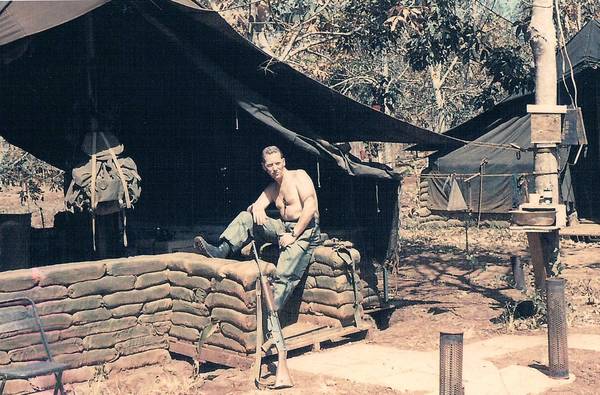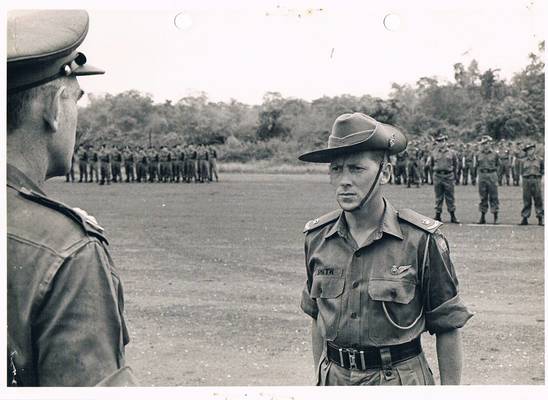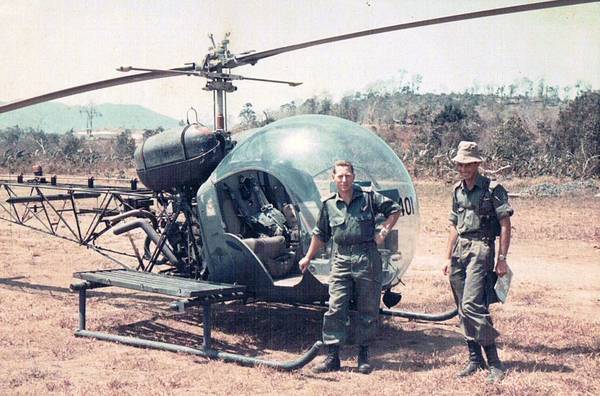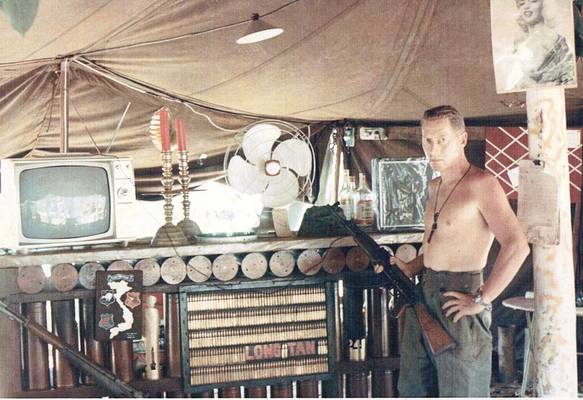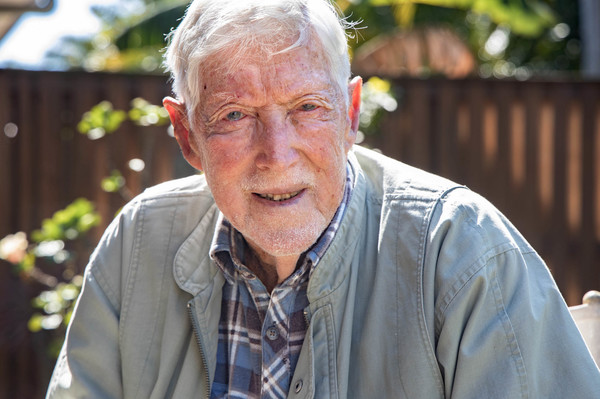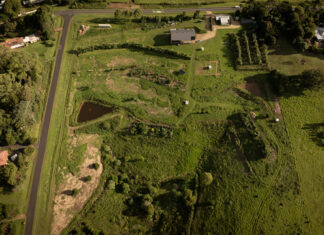The faces were different and some of the details but when retired Australian Army Lieutenant Colonel Harry Smith watched the recently released film, Danger Close: the battle of Long Tan, he had tears in his eyes remembering the soldiers lost in the battle.
Lt Col Smith, 86, of Mudjimba Beach was the commanding officer of the Vietnam War’s most famous battle of Long Tan, commemorated each year on its anniversary on 18 August, now regarded nationally as Vietnam Veterans Day.
It was more than 50 years ago but Smith, a Major at the time, last week recalled the battle as though it happened yesterday.
Smith, then 33, and his men of Delta Company 6th Battalion Royal Australian Regiment (6RAR) were based at the Australian stronghold of Nui Dat, in the middle of Viet Cong supply route when about 2am on 17 August the base was targeted by mortars and rocket launchers.
The next morning B Company 6RAR led by Major Noel Ford was told to “go out and see what they could find”. They found base plates from the mortars and empty rocket launches but no sign of the enemy, Smith said.
The commanding officer (Brigadier Oliver Jackson) called them in. “We took over from them. We had 105 in the company and three (Royal) New Zealand artillery control team led by (Captain) Morrie Stanley who travelled alongside me.”
There were three platoons – 10 led by Lieutenant Geoff Kendall, 11 led by Lieutenant Gordon Sharp, and 12 with Smith under Smith’s control.
“What we didn’t know was that a regiment of North Vietnam troops (with more than 2000 men) had come in during the week and were hiding in the jungle (the other side of a rubber plantation, about 5km from the base).
They came across a few enemy and “knocked one over”. The wounded man was carried off to the east toward the rubber (plantation).When radio contact told them the enemy had come in contact with 11 Platoon there were 30-40 of them. That quickly built up to hundreds. I had to get 11 platoon out. They had lost 13 men and a couple were injured. The enemy had built up to about 1000.
Smith called for reinforcements but it was held back as the Brigadier thought the base was under threat of attack.
Smith later found out the Brigadier had been informed 2000 enemy had travelled to the east on 14 August and were waiting to attack on the night of the concert being given by Australian singers Col Joye and Little Pattie.
“The concert was going on. We could hear the music when we were going out,” Smith said.
Smith managed to get his platoon into a position below a rise out of sight and below firing range from the enemy. The remaining members of 11 platoon later managed to join them.
As the battle exploded so did the monsoons bringing down intense rain, thunder and lightning and reducing visibility.
Stanley provided enemy locations to Allied Artillery forces at Nui Dat which responded with 3500 rounds of fire. “That’s a lot of explosives”, Smith said. “It held the enemy down but they kept on coming (over the rise). Our frontline gunners had machine guns. They mowed them down.”
With ammunition running out two daring helicopter pilots flew through the atrocious weather to drop them supplies.
“Not one enemy got into our lines,” Smith said. “The enemy took so many casualties. They decided to withdraw at 6.45pm as darkness was falling, and as the armed personnel carriers were coming in (an hour and a half after reinforcements were requested). It was all over then. There was not another shot fired.”
“We went back the next morning. It was a scene of carnage. It’s a scene I can still recall. We looked on all the rubber (trees) and all we could see was blood. We found 245 enemy dead. There were 48 more we found in a mass grave to the east. In 1969 an underground hospital was found. In it they found the names of all the enemy lost at Long Tan. There were 876 left on the battlefield or died from injuries.” At the 50th anniversary of the battle Smith travelled to Vietnam and spoke to Vietnamese who fought as enemy in the battle. They couldn’t believe they were up against 100 soldiers, he said.
“On 20 August the commanding officer called saying there was hell to pay (in Australia) over our servicemen being killed and to offset it with gallantry awards. Smith drew up a list of 20 worthy recipients only to be told he had too many. The number was cut in half and the awards downgraded. At the time awards were rationed to a maximum of one medal for every 250 soldiers each six months.
Smith was awarded the Military Cross while the Distinguished Service Order was presented to the Brigadier who never left his office in Nui Dat, he said.
In 1968 members of Delta 6RAR were awarded the US Presidential Unit Citation for gallantry by US President Lyndon B Johnson for extraordinary heroism in action against an armed enemy. South Vietnam awarded them the equivalent.
Smith had to wait till after the 30 year-secrecy period to publicly access military information before he set about fighting to gain recognition for his men in Australia.In 2016 following a tribunal Smith’s recommendations for awards were finally approved.
Smith retired from the army in 1976 after he injured his back when his parachute failed to open properly while he was in exercises with the commandos.
Smith commemorates the anniversary of the battle each year, lays a wreath and has lunch at the RSL with other Long Tan veterans. “I try to let it go at other times,” he said. Over the years sailing has been a refuge for Smith where he can leave his thoughts of war behind. He has spent many years sailing to the Whitsundays and Thursday Island and only recently traded in his racing yacht for a 9m fishing motor boat.
Smith said he felt “very sad about the 17 soldiers (and one army corp man) we lost. I feel sad for all the Vietnamese soldiers. Some of them were just teenagers,” he said.
“Most of my men were conscripts. They were conscripts at 20 and 21 in Vietnam. They were excellent soldiers. We were happy to go to Vietnam. We never expected to get into a battle like Long Tan and lose so many people”.
It was only through their outstanding gallantry and bravery that they survived Long Tan, he said.
Smith recounts his story in his book, The Battle of Long Tan, The Company Commanders Story, available from Big Sky Publishers.
The film Danger Close: The Battle of Long Tan is in cinemas now. Harry Smith is played by Troy Fimmel who rose to fame after playing Ragnar Lothbrok in the Vikings series.

